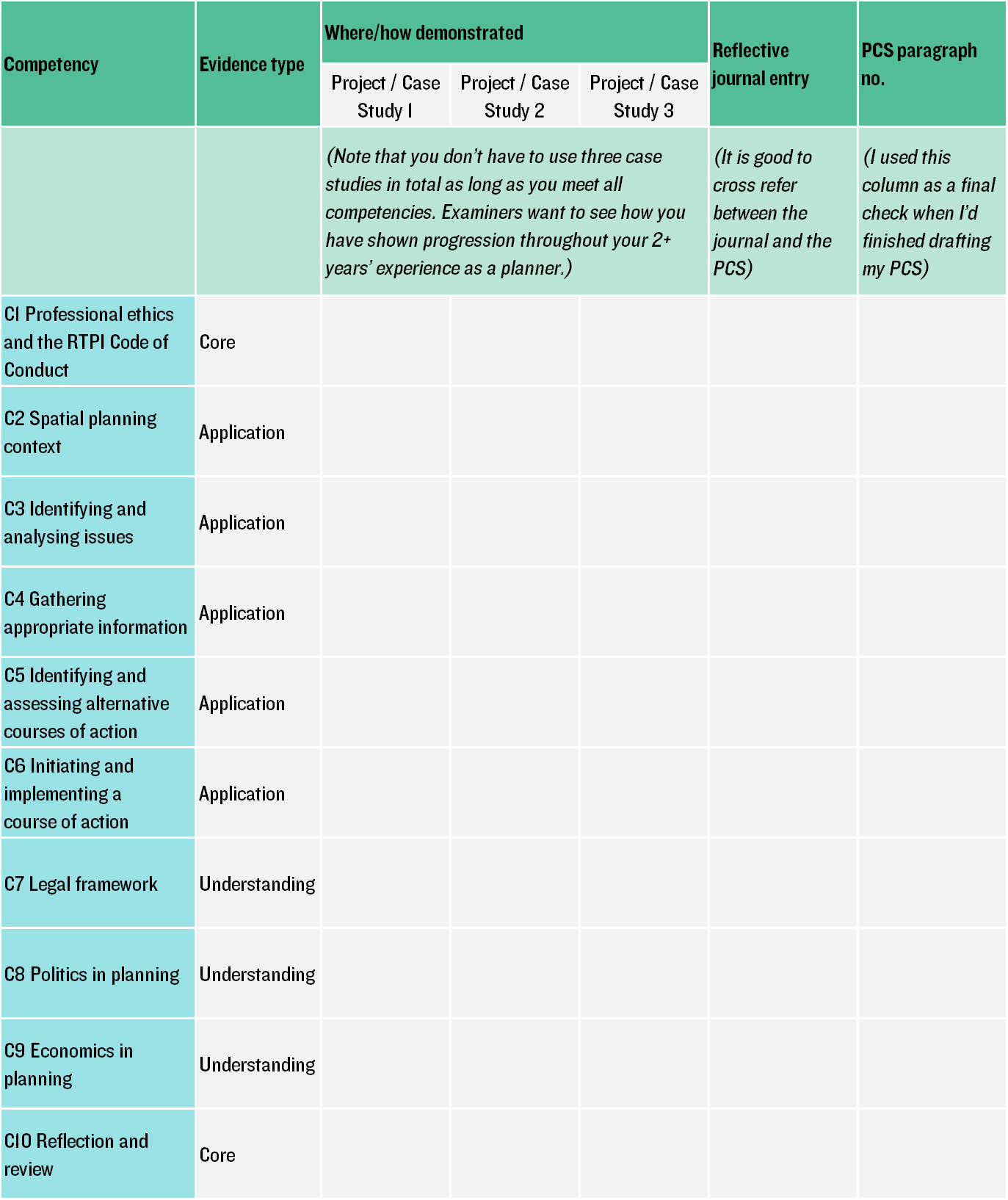Becoming a Chartered Member of the Royal Town Planning Institute (RTPI) is a very important goal for aspiring planners. Preparing and submitting the Assessment of Professional Competence (APC) in order to achieve this can seem like a daunting prospect.
At Lichfields, a planning consultancy where most planners are Chartered Members of the RTPI, we are encouraged to become accredited as soon as possible, in order to further our personal and professional development.
Having been through the process myself in 2019 (via the Licentiate route), I wanted to reflect on my experience and outline my key tips as I am starting to mentor a colleague through the process.
A key starting point for me was to become a Licentiate Member of the RTPI as soon as possible because you need at least 12 months of eligible experience as Licentiate Member before you can apply for full membership.
Once I’d sorted my Licentiate Membership, I asked a colleague if they could be my mentor. It was invaluable to have an RTPI accredited mentor to guide me through the process. They gave me constructive feedback on my written submission and helped me to cut down my word-count where necessary! If someone is not available within your organisation, the RTPI can provide you with an external mentor.
During my two years of undertaking eligible experience, I made sure to note down the tasks I did for each project at the end of each week. I definitely thanked myself afterwards for this, as I was able to use these notes to frame my reflective journal (previously known as a log book) and include information I may have otherwise forgotten. This also made it easier to choose my case studies and prepare my written submission.
Around six months before my target submission date, I read the RTPI’s guidance document from start to finish and highlighted key points. Other valuable tools I used were the RTPI Learn free bitesized modules (including ‘How to write a PDP’ and ‘An introduction to professional ethics’) and the RTPI’s free webinars. From these I began to understand the types of case studies/examples that could be used to cover the competencies in the Professional Competence Statement (PCS) and include within the Professional Development Plan (PDP).
At a similar time (c. 6 months prior to submission), my mentor and I put together a timetable with key dates and added reminders to my calendar. I tried to allow myself a month or so for people to review my submission and get the relevant forms filled in / signed. I also gave my corroborators/mentors forewarning of my deadline. One of my corroborators was on holiday for around 10 days before my submission date so I arranged for their sign off before they went on leave.
When it came to planning the content for my PCS, I prepared a matrix to monitor the experience I had gained against each competency. This allowed me to identify any gaps ahead of time. I’d recommend thinking about this at least 6 months prior to your target submission date so that you can address any gaps with your line manager / project managers. I used a matrix similar to the below for the Licentiate route:
I recently found
this link from the RTPI’s website useful in explaining to my mentee the possible impact that Covid-19 might have on eligible experience.
The RTPI wants to see how you engage with its Code of Conduct and are being critically reflective throughout the PCS and reflective journal. Therefore, when I explained an action I took, I explained why I chose that action instead of just describing it. In some instances, I said that on reflection, I may have chosen differently.
All parts of the submission should link together. The SWOT analysis within the PDP should relate to experience mentioned in the PCS. The action plan within the PDP should address the weaknesses identified in the SWOT.
Once I drafted my submission, my mentor proof read my submission first and indicated certain sections that needed improving. I re-drafted it a few times before sending it to my mum (a non-planner!) to read and make sure it had a logical structure and was easy to understand.
I’d recommend allowing enough time for a few days – a week’s gap before doing a final read through so that you look with a fresh set of eyes. Use the RTPI guidance to check that your submission fulfils the requirements for each section. Try to avoid a last minute rush by getting all of the forms signed and making sure the proof of payment / University Certificate are available well in advance of submission.
Overall, Chartered Membership has helped me, and over 25,000 members worldwide, to demonstrate trusted professional and ethical standards to organisations and clients. It has also enabled me to expand my network and access relevant planning resources.




